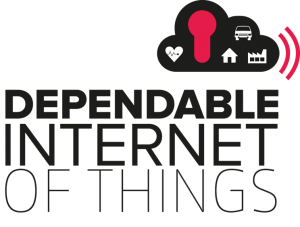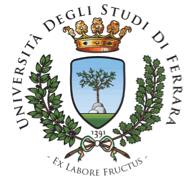Venue
IEEE International Conference on Communica tions
tions
21-25 May 2017 //
Paris // France
IEEE ICC’17:
Bridging People, Communities, and Cultures
Program
Thursday, May 25
09:00 – 09:45: WT03-S1: Morning Keynote
Prof. José M. F. Moura: Distributed Localization for Interconnected Devices: An Iterative Linear Solution
Abstract:
IoT interconnects ever more physical devices that are instrumented with embedded electronics, sensors of different modalities, and actuators. To make full use of IoT and expand the range of potential applications, for example, tracking resources deployed in Hospital environments, or to manage deployed assets, it is important to localize them efficiently, not only outdoors, but, and increasingly more relevant, indoors where GPS is not available. To minimize infrastructure, communications, and power needs, these instrumented devices should cooperate with other nearby objects. In this keynote, I will present a distributed (cooperative) solution that solves the essentially nonlinear localization (triangulation) problem by an iterative linear algorithm that asymptotically converges to the correct localization of each and every device. I will discuss the minimal requirements for convergence and extensions of the basic algorithm to account for motion and noise.
Joint work with Usman Khan (Tufts University) and Soummya Kar (CMU); Ref: IEEE Access 2015, IEEE Trans. Signal Processing, 2010, 2009.
Biography:
José M. F. Moura, www.ece.cmu.edu/~moura, is the Philip L. and Marsha Dowd University Professor at CMU, with interests in signal processing and data science. He invented (with Alek Kavcic) a patented detector found in at least 60% of the disk drives of all computers sold worldwide in the last 13 years (over 3 billion and counting) – the subject of the recent settlement (February 2016) of $750 Million between CMU and Marvell, the largest settlement ever in the information technologies IP area and 3rd largest overall. He is (2016) IEEE VP for Technical Activities, IEEE Board Director, and was President of the IEEE Signal Processing Society (SPS), and Editor in Chief for the Transactions on SP. Moura received the IEEE SPS Technical Achievement Award and Society Award. He is Fellow of the IEEE and of AAAS, corresponding member of the Academy of Sciences of Portugal, Fellow of the US National Academy of Innovators, and member of the US National Academy of Engineering.
09:45 – 10:30: WT03-S1b: Signal processing for Localization and Navigation
A Novel Message Passing Algorithm for Online Bayesian Filtering: Turbo Filtering
Giorgio M. Vitetta, Emilio Sirignano and Francesco Montorsi (University of Modena and Reggio Emilia, Italy)
Factor Graph Based Simultaneous Localization and Mapping using Multipath Channel Information
Erik Leitinger (Lund University & Graz University of Technology, Austria); Florian Meyer (Massachusetts Institute of Technology, USA); Fredrik Tufvesson (Lund University, Sweden); Klaus Witrisal (Graz University of Technology, Austria)
Mitigating Unbalanced GDoP Effects in Range-Based Vehicular Cooperative Localization
Minh Gia Hoang (CEA-Leti Minatec & EURECOM, France); Benoit Denis (CEA-Leti Minatec, France); Jérôme Härri and Dirk Slock (EURECOM, France)
11:00 – 12:30: WT03-S2: Fundamental Limits and Parameter Estimation Techniques
On the Trade-off Between Positioning and Data Rate for mm-Wave Communication
Giuseppe Destino (University of Oulu, Finland); Henk Wymeersch (Chalmers University of Technology, Sweden)
Towards Counting via Passive Radar using OFDM Waveforms
Stefania Bartoletti (ENDIF University of Ferrara, Italy); Andrea Conti (ENDIF University of Ferrara, WiLAB University of Bologna, Italy); Moe Win (Massachusetts Institute of Technology, USA)
On the Impact of Beamforming Strategy on mm-Wave Localization Performance Limits
Anna Guerra (University of Bologna, Italy); Francesco Guidi (CEA LETI, France); Davide Dardari (University of Bologna, Italy)
Impact of Frequency-Hopping NB-IoT Positioning in 4G and Future 5G Networks
José A. del Peral-Rosado (Universitat Autonoma de Barcelona, Spain); José A. López-Salcedo (Universitat Autònoma de Barcelona, Spain); Gonzalo Seco-Granados (Universitat Autonoma de Barcelona, Spain)
Towards a Characterization of Localization Performance in Networks with Random Geometries
Christopher E O’Lone (Virginia Polytechnic Institute and State University, USA); Michael Buehrer (Virginia Tech, USA)
Understanding the Efficiency of Cooperation in Location-aware Wireless Networks
Yifeng Xiong and Jingming Kuang (Beijing Institute of Technology, P.R. China); Yuan Feng (Science Research Institute of China North Industries Group Corporation, P.R. China); Hua Wang (Modern Comm. Lab, P.R. China); Nan Wu (Beijing Institute of Technology, P.R. China)
14:00 – 14:45: WT03-S3: Afternoon Keynote
Dr. Christos Laoudias: Cellular Network Localization: Current Challenges and Future Directions
Slides: Keynote by C. Laoudias
Abstract:
Positioning technologies are important to cellular operators for enabling a variety of network planning and optimization features, while offering the opportunity to open new revenue streams through the monetization of user location data. This talk will first discuss industry interests with respect to the requirements of operators in existing location-dependent processes and envisioned location-aware application scenarios ranging from network event root cause analysis to indoor gaming and retail analytics. The technology landscape will be outlined next through an overview of commercial localization solutions for network operators. In the following, selected technical challenges in user/event localization will be presented focusing on solutions that leverage the high volume of measurement reports recorded at the network side as part of standard network operation. Such challenges include indoor/outdoor identification, 3D location, and mobility state estimation among others. Finally, future directions related to network-based positioning will be discussed in view of recent industry trends, such as network densification, and upcoming communication technologies in the context of 5G that can be greatly assisted by the availability of user location information.
Biography:
Dr. Christos Laoudias has recently joined the KIOS Research and Innovation Center of Excellence at the University of Cyprus contributing to various projects related to localization, tracking, and navigation in telecommunication and smart camera networks. Before that he was leading the geolocation technology research in Huawei Ireland Research Center working on the design of data-driven positioning solutions for cellular network planning and optimization. He holds a Diploma in Computer Engineering and Informatics (2003) and a M.Sc. in Integrated Hardware and Software Systems (2005) from the University of Patras, Greece, and a Ph.D. in Computer Engineering from the University of Cyprus (2014). During his Ph.D. he coached the development of several award-winning indoor localization prototype systems, which have been released under open-source license, and for his doctoral research work he received the Alpha Bank Cyprus Award for “Creative Research and Innovation”. His research interests include positioning and tracking technologies, mobile and pervasive location-awareness, fault-tolerant location estimation, and location-based services.
14:45 – 15:30: WT03-S3b: Methods and Algorithms for Data fusion and Cooperative Localization
Poster Session (The format for the poster presentations will be communicated with the authors shortly)
Probabilistic Multipath Mitigation in RSSI-based Direction-of-Arrival Estimation
Thorsten Nowak (Friedrich-Alexander-Universität Erlangen-Nürnberg); Markus Hartmann (Friedrich-Alexander-Universität Erlangen-Nürnberg, Germany); Hans-Martin Tröger and Lucila Patino-Studencki (Friedrich-Alexander Universität Erlangen-Nürnberg, Germany); Jörn Thielecke (Friedrich-Alexander-Universität Erlangen-Nürnberg)
Direct Position Determination of Multiple Targets via Reduced-dimension Beamspace
Zihang Cheng (Tsinghua University, P.R. China); Yunlong Wang (National Digital Switching System Engineering & Technological Research Center, P.R. China); Yuan Shen (Tsinghua University, P.R. China)
Weighted Online Calibration for Odometry of Mobile Robots
Grigori Goronzy (Lübeck University of Applied Sciences, Germany); Horst Hellbrueck (Lübeck University of Applied Sciences & CoSA Research Group, Germany)
Experimental Results of a Combined TDOA/TOF Technique for UWB Based Localization Systems
Rami Mazraani (AED Engineering, Germany); Daniel Knobloch (BMW, Germany); Leonardo Govoni and Manuel Saez (AED Engineering, Germany)
Near-Far Field Multipath Spatial-Temporal Localisation
Evangelos Venieris and Athanassios Manikas (Imperial College London, United Kingdom)
Cholesky MDS: A Fast and Efficient Heterogeneous Localization Algorithm
Alireza Ghods, Giuseppe Abreu and Stefano Severi (Jacobs University Bremen, Germany)
Location Privacy Protection in Asynchronous Localization Networks by Resource Allocation Approaches
Xiaojing Li, Tingting Zhang and Dan Ma (Harbin Institute of Technology, Shenzhen Graduate School, P.R. China); Bin Cao (Harbin Institute of Technology, P.R. China); Qinyu Zhang (Shenzhen Graduate School, Harbin Institute of Technology, P.R. China)
Direct Multi-Array and Multi-Tone Positioning
Niels Hadaschik (Fraunhofer Institute for Integrated Circuits, Germany); Benjamin Sackenreuter (Fraunhofer IIS, Germany); Marc Faßbinder (Fraunhofer Institute for Integrated Circuits, Germany)
16:00 – 17:30: WT03-S4: Testbeds and Experimentation
ORION: Orientation Estimation Using Commodity Wi-Fi
Mohamed Naoufal Mahfoudi (Université Cote d’Azur Inria Sophia Antipolis, France); Thierry Turletti (INRIA & Université Côte d’Azur, France); Thierry Parmentelat (INRIA & INRIA, France); Fabien Ferrero (University Nice Sophia Antipolis, CNRS, LEAT & CREMANT, France); Leonardo Lizzi (Université Côte d’Azur, CNRS, LEAT, France); Robert Staraj (Universite Cote d’Azur, CNRS, LEAT, France); Walid Dabbous (INRIA, France)
Using DecaWave UWB Transceivers for High-accuracy Multipath-assisted Indoor Positioning
Josef Kulmer and Stefan Hinteregger (Graz University of Technology, Austria); Bernhard Grosswindhager (Technical University Graz, Austria); Michael Rath (Graz University of Technology, Austria); Mustafa Bakr (Technical University Graz, Austria); Erik Leitinger (Lund University & Graz University of Technology, Austria); Klaus Witrisal (Graz University of Technology, Austria)
Distributed Software Defined Radio Testbed for Real-time Emitter Localization and Tracking
Johannes Schmitz, Felix Bartsch, Manuel Hernández and Rudolf Mathar (RWTH Aachen University, Germany)
Tracking of frequency selectivity for device-free detection of multiple targets
Sanaz Kianoush (National Research Council of Italy (CNR), Italy); Stefano Savazzi (National Research Council of Italy (CNR) & Politecnico di Milano, Italy); Vittorio Rampa (IEIIT – CNR – Dipartimento di Elettronica e Informazione, Italy)
Synchronization of Wireless Sensor Networks Utilizing Broadcast Signal Time Stamps
Hans-Martin Tröger and Florian Schmittner (Friedrich-Alexander Universität Erlangen-Nürnberg, Germany); Thorsten Nowak (Friedrich-Alexander Universität Erlangen-Nürnberg); Joerg Robert (Friedrich-Alexander Universität Erlangen-Nürnberg, Germany); Albert Heuberger (Friedrich-Alexander-Universität Erlangen-Nürnberg, Germany)
Indoor Positioning based on Ranging Offset Model and Learning
Shenghong Li and Mark Hedley (CSIRO, Australia); Iain B. Collings (Macquarie University, Australia); David Humphrey (CSIRO, Australia)








